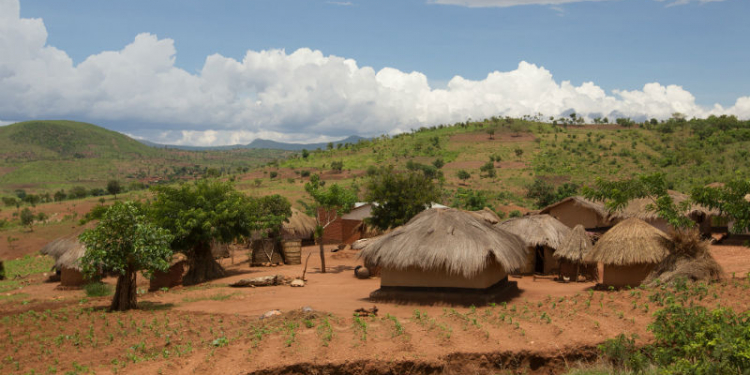The FINANCIAL — The Executive Board of the International Monetary Fund (IMF) on April 30 approved a new three-year arrangement for Malawi under the Extended Credit Facility (ECF) for SDR78.075 million (about US$112.3 million), equivalent of 56.25 percent of Malawi’s quota in the IMF, to support the country’s economic and financial reforms.
The Executive Board’s decision enables an immediate disbursement of SDR11.15 million (about US$16 million). The remaining amount will be phased over the duration of the program, subject to semi-annual reviews.
The authorities’ ECF-supported program aims to entrench macroeconomic stability and to foster higher, more inclusive, and resilient growth. This will be achieved through fiscal consolidation to ensure long-term debt and external sustainability; containing inflation; focusing policies on poverty-reducing and resilient growth by raising the amount and quality of spending on critical infrastructure and social sectors; tackling governance challenges through improved public financial management and procurement; improving financial intermediation and strengthening access to finance; and advancing critical growth-supporting structural reforms, according to IMF.
During the same meeting, the Board also concluded the 2018 Article IV consultation. A separate press release will be issued.
Following the Executive Board discussion on Malawi, Deputy Managing Director Mr. Tao Zhang, and Acting Chair, said:
“Malawi has shown progress in achieving macroeconomic stabilization following two years of drought, with a rebound in growth and inflation reduced to single digits. However, the fiscal position has deteriorated and the public debt to GDP ratio has risen. Increased debt service pressures have reduced space for needed infrastructure and social spending.
“The authorities are making efforts to entrench macroeconomic stability, raise growth and reduce poverty. Fiscal consolidation will ensure long-term debt and external sustainability. This, combined with continued strengthening of the monetary policy framework, will contain inflation and reduce fiscal dominance. The amount and quality of spending on critical infrastructure and social sectors will be raised. Governance will be improved through reforms in public financial management and procurement. Improved financial intermediation, access to finance, and other critical growth-supporting structural reforms will be advanced. The IMF arrangement under the Extended Credit Facility will support the authorities’ program and efforts.
“The medium-term economic outlook is favorable, with private sector activity expected to benefit from better infrastructure and an improved business climate. Progress will depend on the authorities’ strong ownership to support successful implementation of their program.”
Annex
Recent Economic Developments
The economy recently rebounded from two years of drought. Growth picked up from 2.3 percent in 2016 to an estimated 4.0 percent in 2017 owing to a recovery in agricultural production. Inflation has been reduced below 10 percent—from high double digits in recent years—due to the stabilization of food prices, prudent fiscal and monetary policies, and a stable exchange rate. The current account deficit narrowed to 10.0 percent of GDP in 2017 from 13.6 percent in 2016, following lower maize imports and higher prices for some exports. The banking system remains stable though vulnerabilities have somewhat increased.
While the authorities regained control over the budget during FY16/17, this proved challenging during FY17/18. Revenue shortfalls and expenditure overruns, including the bailout of maize purchase loans by a parastatal exerted significant pressures on the budget. The authorities are implementing remedial measures to improve the fiscal position in FY18/19. These measures will also help contain public debt which has doubled over the last decade, reaching 55 percent of GDP in 2017, after the withdrawal of donor budget support, securitization of arrears, and recapitalization of the Reserve Bank of Malawi and two public commercial banks.
Economic growth is expected to increase gradually, reaching over 6 percent in the medium term. Growth will be supported by enhanced infrastructure investment and social services as well as an improved business environment, which will boost confidence and unlock the economy’s potential for higher, more broad-based, and resilient growth and employment. Downside risks to growth include political pressures in the run-up to next year’s elections that could weaken policy discipline and reform efforts, weather-induced shocks, and declines in agricultural commodity prices.
Program Summary
Fiscal policies will support growth-enhancing and poverty-reducing spending while containing inflation and ensuring debt sustainability. The government is committed to strengthening the fiscal balance, reducing fiscal dominance, improving public financial management and procurement, and raising the amount and quality of critical infrastructure and social spending. This includes enhancing investment planning, increasing transparency in the budget process, strengthening the medium-term budgetary framework and cash management, routinizing bank reconciliation, closing out the arrears clearance program, and implementing broad-based tax reforms.
Monetary policy will aim to keep inflation within single digits while maintaining positive real interest rates. The Reserve Bank of Malawi will further strengthen the monetary policy framework, improve access to finance, and safeguard financial sector stability.
The government is committed to implementing deep structural reforms to ignite job-creating private sector growth.
Background
Malawi, which became a member of the IMF on July 19, 1965, has an IMF quota of SDR 138.80 million.































